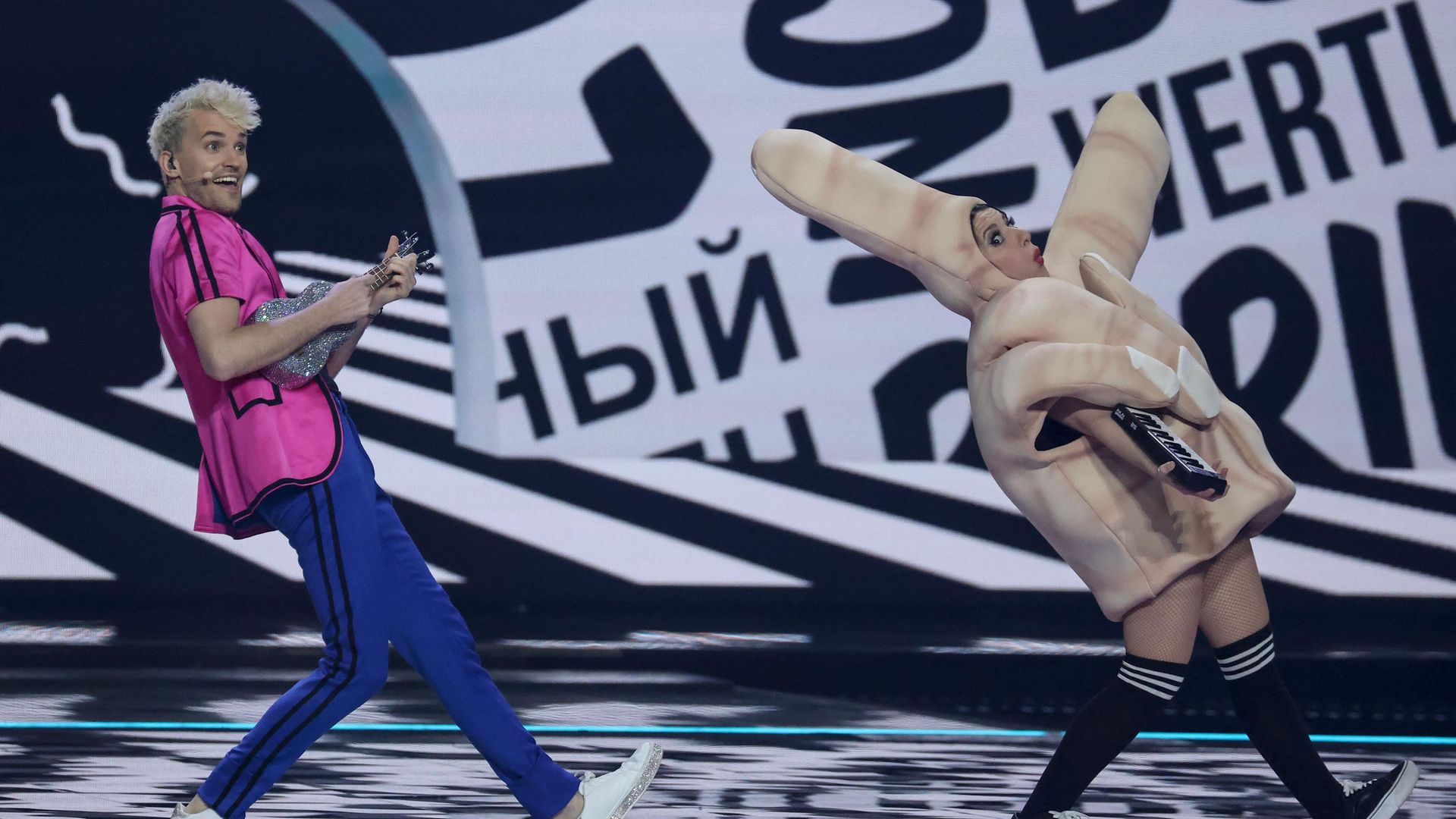
Germany fared almost as badly as the UK at the Eurovision Song Contest. Perhaps it’s time to come to an arrangement…
Ooops, they did it again. Zero points… To us. And no, three pity points from the Austrian and Romanian juries don’t make our shame any less complete. But still, Vielen Dank, Britain, for saving us from the bottom position. Just as you did last time around, in 2019, although for that year I should extend my gratitude to Madonna. Her gruesome guest-performance in Tel Aviv was a bigger talking point than our joint shame at the bottom of the leader board. I still haven’t fully recovered from Like a Prayer out of tune…
My Eurovision trauma goes back much further, though, to my school days in Ireland. In 1995, Germany came last and therefore did not qualify for following year. Ireland by contrast had won three times in a row and my school mates teased me how they would naturalise a German singer to make sure they lost, because Dublin couldn’t afford to host the event for a fourth time. They also force-fed me Michael Flatley videos. Kids can be so cruel.
Since then, Germany has never missed a Eurovision final since. We (and you) pay our way into it as part of the Big Five contributors… which has become a curse lately, unless you have a zero-points-fetish.
The show remains one of the most-watched TV events in Germany (close to 8m viewers, more than 30% market share) but that’s certainly not down to our performance. Since 2015 we have finished in the following places: 27, 26, 25, 4 (a glitch), 25, 25.
Hearing that the show with 3,500 fans in the Rotterdam Ahoy arena was treated as a “fieldlab”, to make it Covid secure, made me smile, because I had always considered Eurovision a fieldlab for folkloristic oddities of European taste.
In Germany, as with many things, the song contest is a serious matter – at least for the public broadcaster ARD. I remember an ARD official unsuccessfully trying to ban one particular Bild reporter from covering the song contest in Stockholm, because they hadn’t forgiven the paper for unpatriotically critical Eurovision headlines in the past.
This year, German entry Jendrik showed some anticipatory wisdom with his lyrics: “I don’t feel hate, I just feel sorry.” That’s exactly what viewers across Europe have apparently felt, too, on hearing the song.
The German TV commentator, however, had a different (and perfectly idiotic) explanation for the lack of popular support: “Maybe the audience didn’t quite understand the song’s message? Maybe it was too complicated.”
He obviously missed that the winning song was in Italiano. No one understood the words, but the message was: this is great rock song by bare-chested Italians. Whereas the German entry featured a giant hand on stage that couldn’t make up its mind whether it was a victory sign or a raised middle-finger.
For the most part, Germany’s history in the contest can be summed up as sing-along-virtue signalling: Ve are not a force to be reckoned viz any longer, ve vill not invade anything but your auditory canals, if anything, ve only harm your ears.
No wonder the first (of two) German victories was Nicole’s white-guitared performance, in Harrogate, of Ein bißchen Frieden (‘A Little Peace‘) in 1982. Side note: The song was written by Ralph Siegel, who continued to compose German Eurovision entries for what felt like another ten decades. My country likes continuity… That’s why we sent 2010 winner Lena in for a second round in 2011.
In all fairness, though, there have been good German entries – No, no never by Texas Lightning in 2006, for instance – that were treated unfairly by the Eurovision voting system. And that’s a problem the UK and Germany share: our songs need to be exceptionally good to win the contest, but not exceptionally bad to come last. Every year, I see and hear worse entries than ours by far.
It’s just that our countries are not Moldova (douze points from Romania no matter what), Romania (vice versa), Greece, Cyprus, Azerbaijan, Serbia, Bosnia, North Macedonia or whichever state can rely on strategic jury bonds or on a large ethnic minority next door.
Nor do we add background staffers dressed as… erm, hookers?… to allure to sentiments other than musical ones. Although Germany did engage burlesque dancer Dita von Teese once, to support our entry in Moscow 2009. It didn’t work as planned: the song came 20th.
So as a nul points veteran, may I suggest that we create a strategic bond, too? Now that it didn’t work for football, a Super Music League maybe. Give it a thought. Together, we could make douze points in 2023.
What do you think? Have your say on this and more by emailing letters@theneweuropean.co.uk
Warning: Illegal string offset 'link_id' in /mnt/storage/stage/www/wp-includes/bookmark.php on line 357
Notice: Trying to get property 'link_id' of non-object in /mnt/storage/stage/www/wp-includes/bookmark.php on line 37






